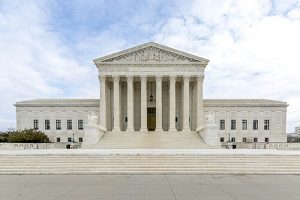Whistleblowers Win One in Supreme Court with Clarification on Statute of Limitations for False Claims Act Actions

In a unanimous opinion written by Justice Clarence Thomas, the Supreme Court affirmed that the False Claims Act’s statute of limitations applies in the same manner to all whistleblower-initiated actions, regardless of whether the United States has intervened in the action or not. The decision resolves a three-way split among the federal circuit courts.
In the underlying litigation, U.S. ex rel. Hunt v. Cochise Consultancy, whistleblower Billy Joe Hunt alleged defense contractor Cochise submitted inflated and improper bills for security services it provided in Iraq through early 2007. Hunt filed his complaint in November 2013, more than six years after the false claims at issue.
The Statute of Limitations for FCA Actions
While the False Claims Act generally requires actions must be filed within six years of the violation, this statute of limitations may be extended when the violations are unknown to the United States – the victim of the fraud. Such a tolling provision is a common feature of statutes of limitations: fraud is, by its nature, hidden from the victim, so the clock for filing an action about the fraud should not begin to run until the fraud has been discovered.
The FCA tolling provision provides, as an alternative to the six-year limit, that an action may be brought within three years of the date “when facts material to the right of action are known or reasonably should have been known by the official of the United States charged with responsibility to act in the circumstances.” Even this delayed discovery rule is not indefinite, however. The FCA also requires all actions must be brought within ten years of the violation.
The Cochise Facts and Decision
In Cochise Consultancy, Hunt had first informed U.S. officials – federal agents investigating a different fraudulent scheme – of the alleged fraud in November 2010, within three years of the date he filed the action. While defendant Cochise argued that Hunt’s action was barred by the six-year limitations period, Hunt argued that he had filed the action within three years of the date the U.S. learned of the violations and within ten years of the date the violations occurred and, therefore, that his action was timely.
The U.S. did not intervene in Hunt’s case. Cochise argued that without the government as a party, the tolling provision did not apply.
The Supreme Court soundly rejected the defendant’s argument, holding that the statute of limitations is the same whether the U.S. intervenes or not. In other words, if the government did not know of the fraud, the tolling provision applies.
Cochise also argued that Hunt, as the relator, should be recognized as the equivalent of an “official of the United States charged with responsibility to act,” and, therefore, the three-year statute of limitations should start when the relator, not the government, has information about the fraud.
The Supreme Court rejected this argument as well. Despite playing a critical role in reporting fraud, whistleblowers do not have a responsibility to act, and they are not officials of the United States.
What Cochise Means for Whistleblowers
While the Supreme Court’s holding may ultimately impact just a few cases, it is an important victory for whistleblowers. It brings certainty to FCA litigation by resolving a split among different circuits and ensuring that the statute of limitations remains the same whether the government intervenes or not. Intervention, a decision the government makes only after the case is filed, is not within the control of the relator. The applicable statute of limitations should not rely on events relators cannot predict when they bring their cases.
Still, this decision should not be read as an excuse for whistleblowers to delay in bringing cases. Indeed, the FCA has multiple strong incentives to ensure that relators bring actions promptly. Relators who delay risk a prior public disclosure, they risk another relator beating them to the courthouse, and, even if they survive those risks, they risk that the DOJ and courts may consider undue delay as a factor in reducing their share of any recovery.
Read More:
- False Claims Act
- Think you have a whistleblower case?
- Take our whistleblower quiz
- Speak with a Constantine Cannon whistleblower attorney
Tagged in: Court Decision, FCA Federal, Government Decision, Statute of Limitations,